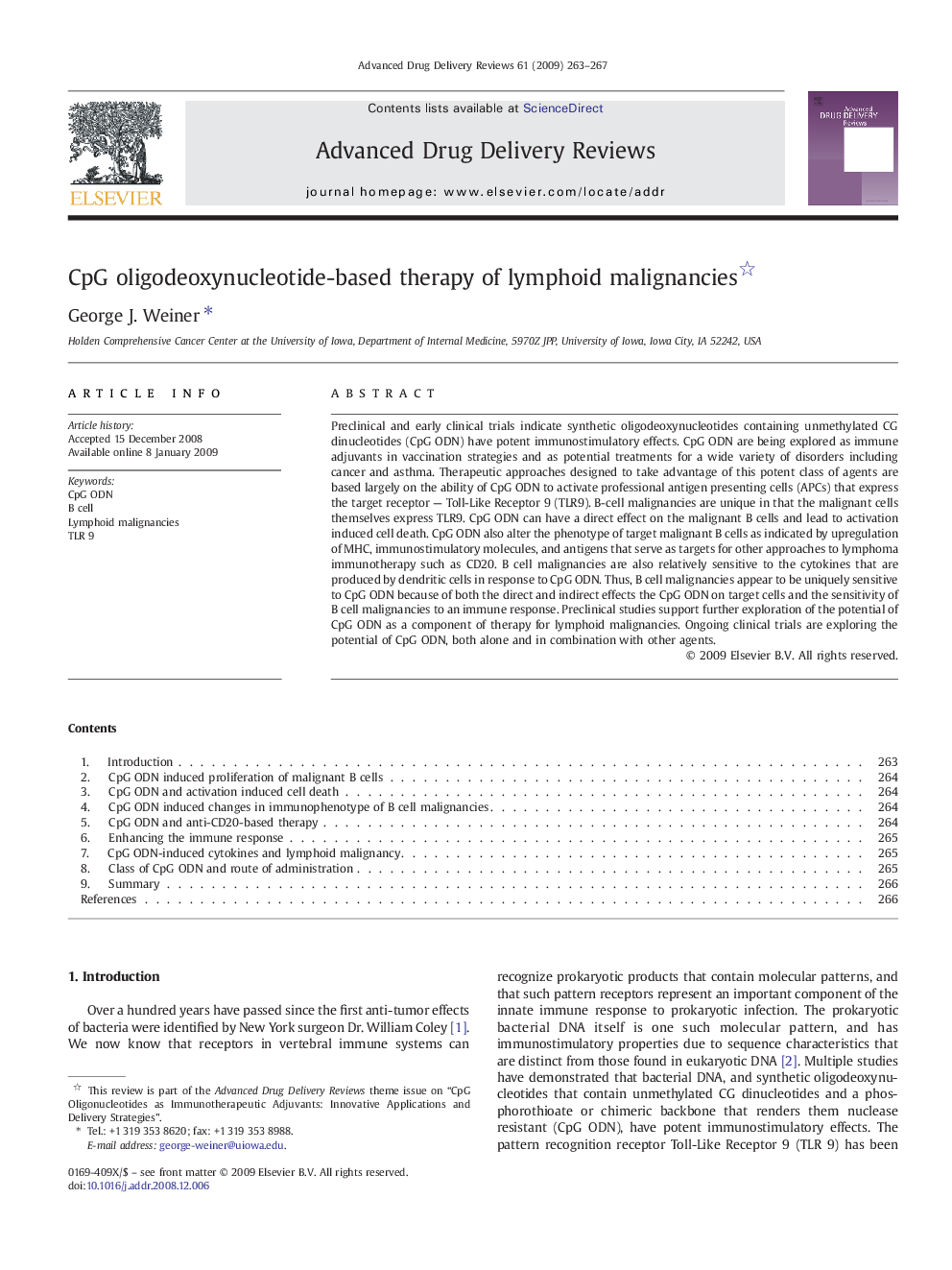| Article ID | Journal | Published Year | Pages | File Type |
|---|---|---|---|---|
| 2071631 | Advanced Drug Delivery Reviews | 2009 | 5 Pages |
Preclinical and early clinical trials indicate synthetic oligodeoxynucleotides containing unmethylated CG dinucleotides (CpG ODN) have potent immunostimulatory effects. CpG ODN are being explored as immune adjuvants in vaccination strategies and as potential treatments for a wide variety of disorders including cancer and asthma. Therapeutic approaches designed to take advantage of this potent class of agents are based largely on the ability of CpG ODN to activate professional antigen presenting cells (APCs) that express the target receptor — Toll-Like Receptor 9 (TLR9). B-cell malignancies are unique in that the malignant cells themselves express TLR9. CpG ODN can have a direct effect on the malignant B cells and lead to activation induced cell death. CpG ODN also alter the phenotype of target malignant B cells as indicated by upregulation of MHC, immunostimulatory molecules, and antigens that serve as targets for other approaches to lymphoma immunotherapy such as CD20. B cell malignancies are also relatively sensitive to the cytokines that are produced by dendritic cells in response to CpG ODN. Thus, B cell malignancies appear to be uniquely sensitive to CpG ODN because of both the direct and indirect effects the CpG ODN on target cells and the sensitivity of B cell malignancies to an immune response. Preclinical studies support further exploration of the potential of CpG ODN as a component of therapy for lymphoid malignancies. Ongoing clinical trials are exploring the potential of CpG ODN, both alone and in combination with other agents.
